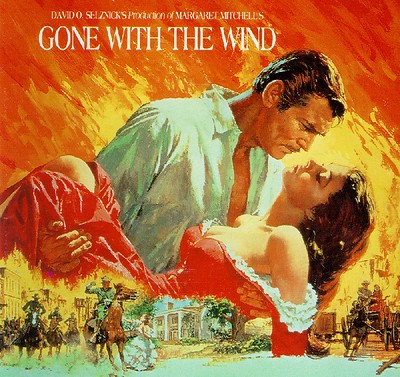For much of the 20th century, the Lost Cause dominated the memory of the Civil War in the South. The Lost Cause was an interpretation of the war that viewed Southern troops as noble and the cause of the war as issues other than slavery. It focused on the contributions of Southern women and the admiration of Confederate generals such as Robert E. Lee. The Lost Cause influenced museums, history books, and media including movies, but it was based on a flawed view of history.
The Lost Cause originated in the years after the Civil War. At that time, the South was demoralized and in ruins. Confederate bonds and money were worthless. All of the Confederate capital in slavery was lost. State governments struggled and it took many years before they functioned as they had before the war. Voters elected Northerners and Black candidates in most Southern states. Developing industry and railroads in the region moved state economies slightly away from agriculture.
In response, Southern leaders, historians, and others rewrote the history of the war and the South. Confederate leaders such as President Jefferson Davis and North Carolina Governor Zebulon B. Vance, as well as later historians such as Joseph Grégoire de Roulhac Hamilton, made new arguments about the reasons for and conduct of the war. They downplayed the importance to the war of protecting slavery. Instead, they said that the war was fought for issues such as states' rights and a lower tariff. Enslaved black people were depicted as happy family members to their enslavers instead of human property. In the story of the Lost Cause, Generals Robert E. Lee and Stonewall Jackson became saint-like figures.
According to the Lost Cause, the Union did not outsmart the Confederacy. Only the overwhelming numbers of the Union army led to Confederate defeat. This information went against the historical facts that many Confederate leaders were incompetent generals and that the war was fought over slavery. Confederate Vice President Alexander H. Stephens believed that slavery was the cornerstone of the Confederacy, and gave a speech about this on March 21, 1861, just weeks before the first battle of the Civil War. After the war, Confederate President Jefferson Davis argued that a major factor in the Confederate loss was not just Union numbers but also the deficient performance of generals like Braxton Bragg.
The Lost Cause can also be seen in books and movies that idolized soldiers and Confederate women. One famous example is the 1939 film Gone with the Wind. In that film, the Old South is portrayed as an ideal society of wealth and dignity destroyed by war. Enslaved people are depicted as happy and carefree members of their enslavers' family. Historians and novelists also played a role in promoting Lost Cause ideology. Two North Carolinians who supported the culture of the Lost Cause were historian Joseph Gregoire de Roulhac Hamilton and novelist Thomas Dixon, Jr. Both used their writings to support Confederate soldiers and politicians, minimize the sufferings of enslaved people, and attack black Republicans and officeholders who were elected to power after the Civil War.
The Lost Cause was not only found in culture, it was also political. The Lost Cause was part of the process known as Redemption. In that era, white supremacists took legal rights and political power away from black politicians and their white supporters and said they were "redeeming" the South. The Lost Cause became a tool in Redemption. The Lost Cause was seen as another battle in the Civil War, with the Ku Klux Klan standing in for the Confederate army and fighting federal troops. In this battle, the South believed it could win.
New organizations such as the United Sons (founded in 1896) and United Daughters of the Confederacy (founded in 1894) were founded to provide for veterans and soldiers' widows. They also helped fund Confederate monuments throughout the South. At the dedications of these monuments, speakers often connected the memory of Confederate soldiers with the goals of white supremacy. Julian Carr's speech at the dedication of the Confederate monument at the University of North Carolina is a prime example. At the 1913 dedication, Carr spoke glowingly of the former Confederate soldiers who stood up when "'the bottom rail was on top' all over the Southern states." His speech was a reference to when black Americans were elected to political power in the South. Some former Confederate soldiers, whom Carr believed "saved the very life of the Anglo-Saxon race in the South," were proud white supremacists or members of the Ku Klux Klan.
The Lost Cause still exists today in many ways. A large number of Americans still believe in the Lost Cause story of the Civil War. Four states still celebrate Robert E. Lee's birthday. Confederate Memorial Day is a public holiday in North Carolina. But the most public example of the Lost Cause are Confederate monuments across the state. These monuments continue to polarize and stoke controversy about the memory of the Civil War more than 100 years after their construction.
References:
Blight, David W. Race and Reunion: The Civil War in American Memory. Cambridge, MA: Harvard University Press, 2002.
Brown, Emma. "Poll: Americans divided over whether slavery was the Civil War's main cause." The Washington Post. August 6, 2015. https://www.washingtonpost.com/news/education/wp/2015/08/06/poll-americans-divided-over-whether-slavery-was-the-civil-wars-main-cause/.
Kirkpatrick, Mary Alice. "Thomas Dixon, 1864-1946 and Arthur I. Keller (Arthur Ignatius), 1866-1924." Documenting the American South. Chapel Hill, NC: University of North Carolina: Chapel Hill. 1999. https://docsouth.unc.edu/southlit/dixonclan/summary.html.
McWhiney, Grady. Braxton Bragg and Confederate Defeat. New York: Columbia University Press, 1969.
Stephens, Alexander H. "Cornerstone Speech." American Battlefield Trust. https://www.battlefields.org/learn/primary-sources/cornerstone-speech.
"The Lost Cause: Definition and Origins." American Battlefield Trust. July 14, 2021. https://www.battlefields.org/learn/articles/lost-cause-definition-and-or....
Williams, David S. "Lost Cause Religion." New Georgia Encyclopedia. October 2, 2017. https://www.georgiaencyclopedia.org/articles/arts-culture/lost-cause-rel....
WLOX Staff. "MLK Day also observed as Robert E. Lee Day in Mississippi." WLOX. January 17, 2022. https://www.wlox.com/2022/01/17/mlk-day-also-observed-robert-e-lee-day-m....

